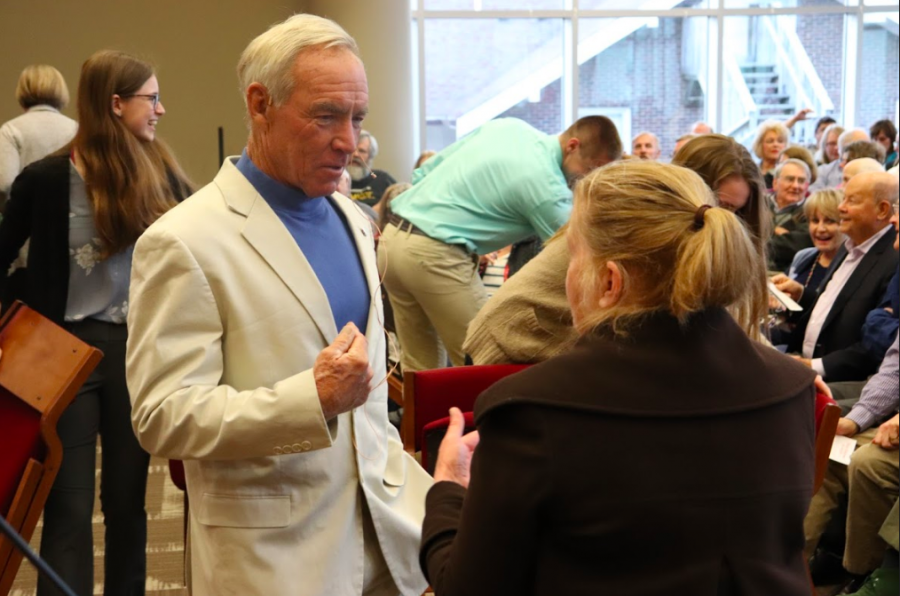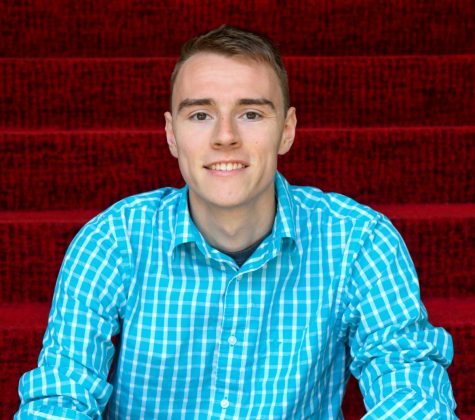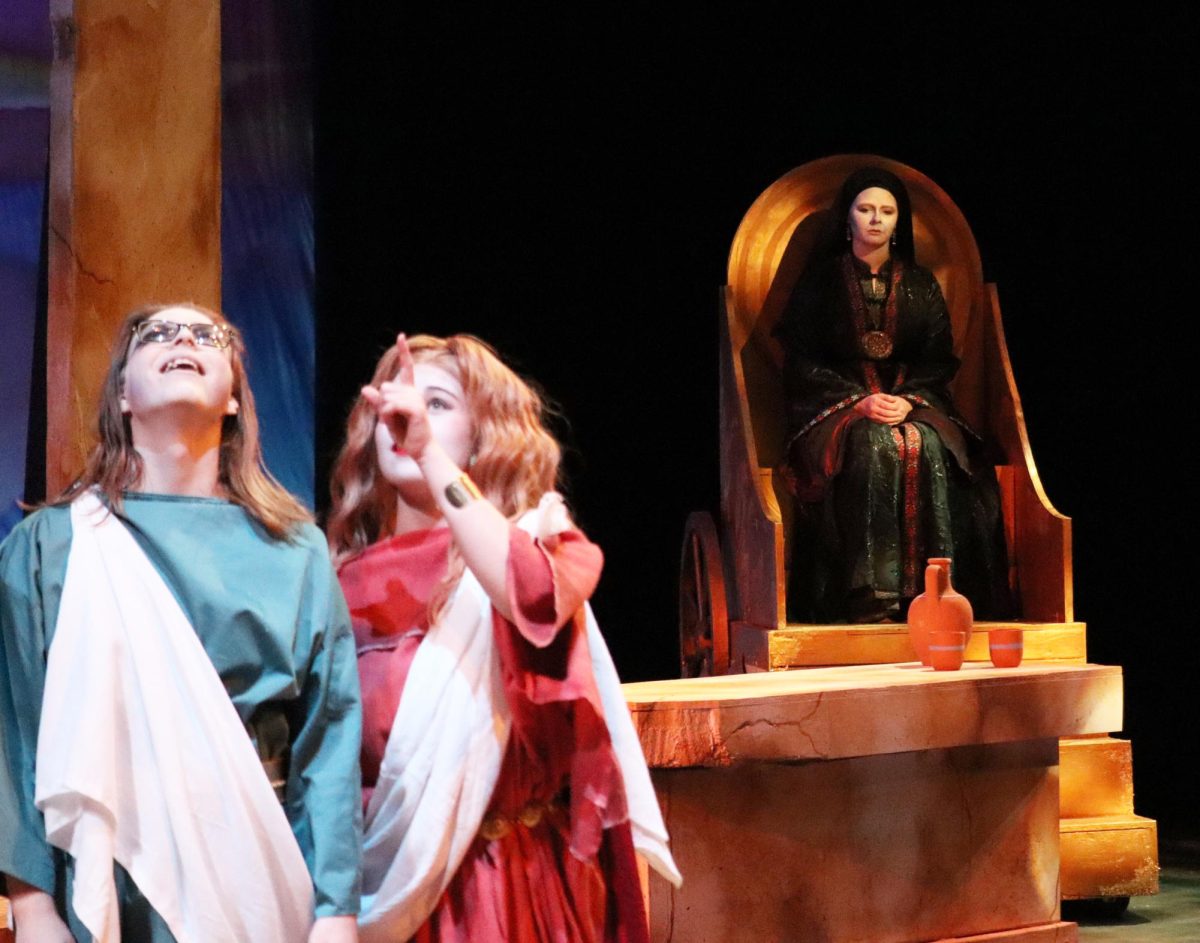‘68 Simpson grad recalls Vietnam evacuation missions
March 20, 2019
Gerald Berry was just months away from graduating Simpson College when he was drafted in late 1967 to serve in the Vietnam War.
Seven years later, he would be the last U.S. soldier to fly out of Saigon on a rescue mission to extract the U.S. ambassador and countless Vietnamese nationals fleeing the violence.
The 1968 graduate returned to campus Wednesday evening to recount his experiences as a pilot in Vietnam to an audience of over 200 people in Hubbell Hall.
Berry also briefly explained the origins of the war, going as far back as the French colonization of Vietnam beginning in the 1860s.
Berry said the French retained control of Vietnam throughout World War II and only lost control of the territory in 1954 at the conclusion of the First Indochina War. The U.S., under President Franklin D. Roosevelt, originally supported Vietnamese independence from France but later supported the French under President Harry S. Truman.
The end of the war resulted in the division of Vietnam into the communist North and the democratic South. As violence between the two sides intensified, the U.S. became involved in the conflict following a confrontation between the North Vietnamese and a U.S. naval ship in the Gulf of Tonkin.
That involvement came despite previous warnings by U.S. military leaders to not become entangled in Vietnam. Berry said that President Johnson was even once quoted as saying, “What the hell is Vietnam worth to me?”
By 1969, the end of the war was nowhere in sight and over half a million American soldiers were deployed in combat. However, it’s also at this time that Berry and three other Simpson graduates joined the war.
“So things are going to get better,” Berry added, earning laughter from the audience.
The other Simpson students who went to Vietnam with Berry were Doug Simmons and Tom Schmidt, who were basketball players, and Steve Boyum, who was a member of Lambda Chi Alpha. Berry himself was Simpson’s football captain and president of the Sigma Alpha Epsilon fraternity.
Berry recalled a flight mission he took part in with Simmons in the fall of 1969 where they had to pick up a five-man reconnaissance team from a valley. During the mission, Simmons was Berry’s attack helicopter support.
Berry went in and retrieved the team with his helicopter but was met with armed resistance when we came down to pick them up. It was at that same moment that Simmons came to fend off the attackers and allow Berry to fly away.
When the two later debriefed, Berry expressed his surprise that Simmons came down through the heavy cloud layer help him. Simmons responded by telling him, “I was not letting you go through there alone.”
“He saved that helicopter and that recon team that day,” Berry added.
A more somber anecdote Berry recounted was when he had to retrieve a wounded-in-action soldier. As he and his team were retreating with the wounded soldier in tow, several of his crew members, including his co-pilot and one of his gunners, received mortal injuries from enemy fire. Berry, meanwhile, said he came out of the incident without a scratch.
“I don’t know why it happens like that,” he said. “I have no clue. But there’s probably not many days that go by in my life that I don’t think about those young Marines that didn’t come home.”
Berry nonetheless continued his service with the war efforts, which culminated in his April 1975 mission Operation Frequent Wind. It was during that mission Berry helped evacuate countless people from the embassy in Saigon, including his main charge, U.S. Ambassador Graham Martin.
The operation was easier said than done, according to Berry.
He made several trips to and from the embassy to pick up evacuees, but each time he landed, the ambassador said he himself wasn’t ready to board Berry’s helicopter.
“The crowds never get any smaller at the embassy,” Berry said, referencing the massive crowds at the embassy made up of people fleeing the war. “The ambassador wants to get as many people out as he possibly can, those Vietnamese that supported us.”
It was later that morning that Berry noticed everything has gone quiet around him and his radio has gone silent. It wasn’t until about 4 a.m. that Berry learned the other members of the evacuation force had shut down to rest, except for him.
Now, Berry was more determined than ever to get the ambassador out. He eventually called his sergeant and told him he wouldn’t leave the embassy’s roof until the ambassador was on board. He had added, in a squeaky voice, that the president ordered the ambassador to leave.
“And two minutes later, he’s on board,” Berry said.
At first, he said he had been frustrated the evacuation took so long but then later thought, “President Ford couldn’t order him out. Kissinger couldn’t order him out. It takes a young Marine from Simpson College.”
His mission finally accomplished, Berry ended what was, and still is, the largest helicopter evacuation in history.







